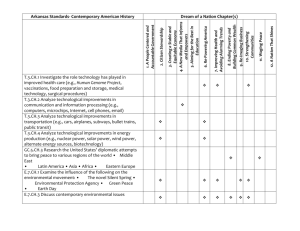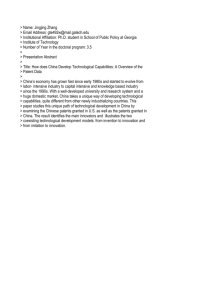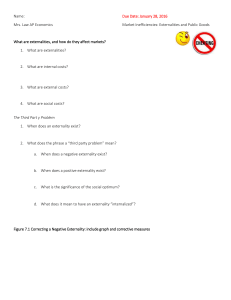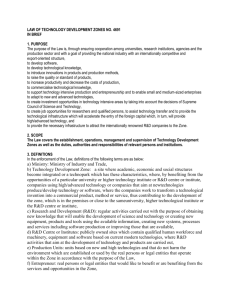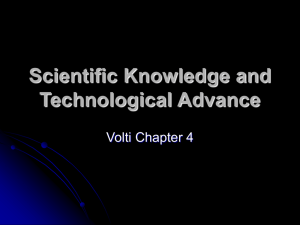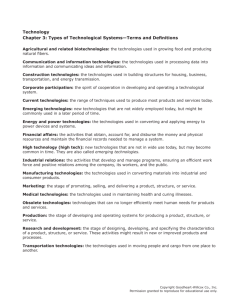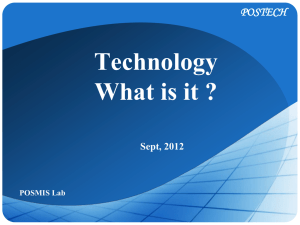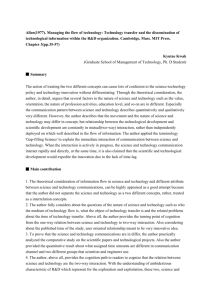Environment - Warwick Debating Society
advertisement
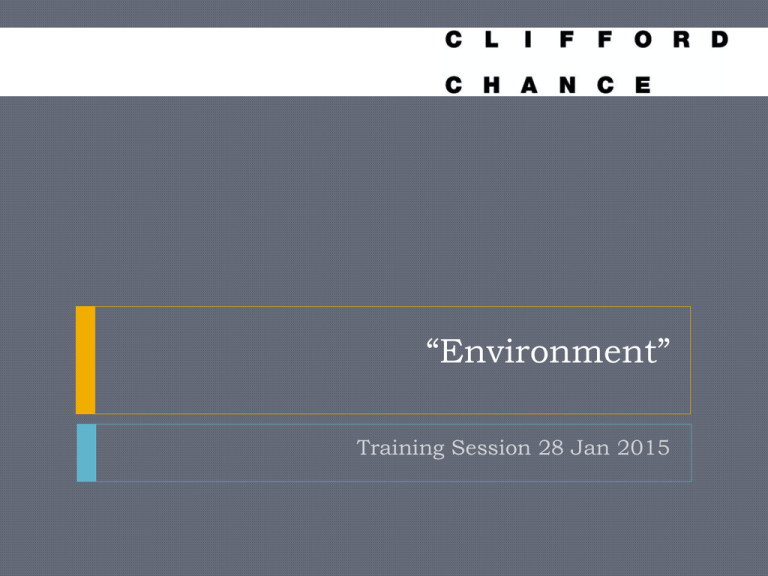
“Environment” Training Session 28 Jan 2015 1. Nearly every environmental debate can be constructed as a clash between three different viewpoints. – Deep Green Ecology – Sustainable Development – Technological Development Conceptual Approaches • Deep Green: – Environmental damage is caused by over consumption. Only way to protect earth is to cut consumption. • Sustainable Development: – Development is crucially important, and technology will provide the solutions, but it needs to be guided and bad actions actively regulated away. • Technological Development: – The solution to environmental problems is even more rapid economic development, this leads to cleaner technology. Humans vs Nature • Deep Green: – Nature has intrinsic and equal value to humans. • Sustainable Development: – Nature has intrinsic value, but human interests trump them. • Technological Development: – Nature only matters so far as it serves human interests. Views on 3rd/1st World responsibility • Deep Green: – All nations must cut • Sustainable Development: – Focus on 1st world – easy steps and loose timetables to get people on board • Technological Development: – Let things happen naturally Efficiency • Deep Green: – “efficiency paradox” – “inefficiency paradox” • Sustainable Development: – In the middle, in some cases tech solutions are not sufficient, in some cases they are. • Technological Development: – “efficiency” – market forces that drive ever cheaper products also drive production to be more and more efficient, and hence environmentally friendly (since using up resources costs money). Example action on Climate Change • Deep Green: – Outlaw dirty industries, directly intervene in markets • Sustainable Development: – Carbon Trade – Kyoto Protocol • Technological Development: – Asian-Pacific Pact for Clean Development (no restrictions, just promises of investment) 2. There are a number of slightly economic principles that are extremely useful in environmental debates. Tragedy of the Commons • Common goods – air, forests, water. No one necessarily owns them, but everyone uses them. • In the historic example, farmers in the UK had shared access to a pasture. Individual farmers tried to get as many cows on it as possible to maximize their profits, but in doing so, overgrazed the fields and hence destroyed them. • Possibly the best contemporary example of a tragedy of the commons is fishing in international waters. While overfishing will cause fish stocks to be depleted unsustainably, individual fishers have an incentive to fish as hard and fast as they can, because if they don’t get the fish, someone else will. • Solutions to such tragedies involve privatizing commons, or issuing permits for their use. Negative Externalities • An externality is something that isn’t included in the cost of production or of a product. For example, air pollution. • Solutions to this are to either charge for them (either through taxes or through creating permits that internalize the cost of the negative externality) or restrict their use. Hard limits have been used to significantly cut down Sulphur Dioxide emissions (contribution to Acid Rain.) Adding a price to negative externalities to internalize the costs is the logic behind carbon trading. 3. Environmental debates are not that different from any other debate – you need to think carefully through the incentives of various actors, and how particular policies will change their behaviours. Example motions
